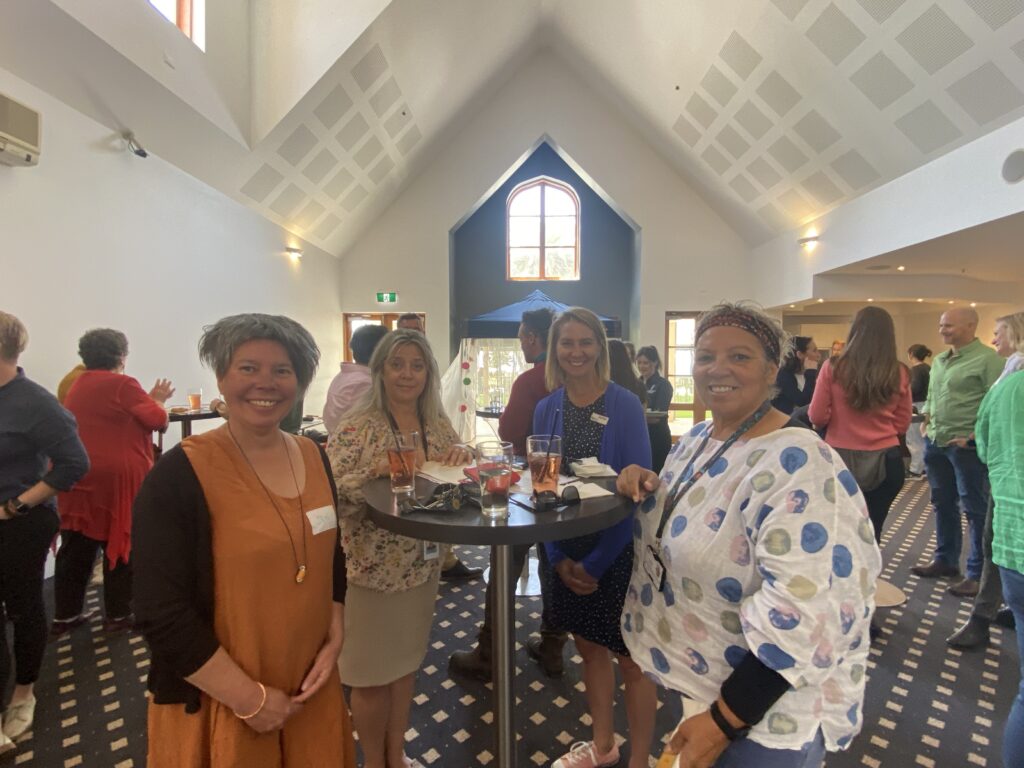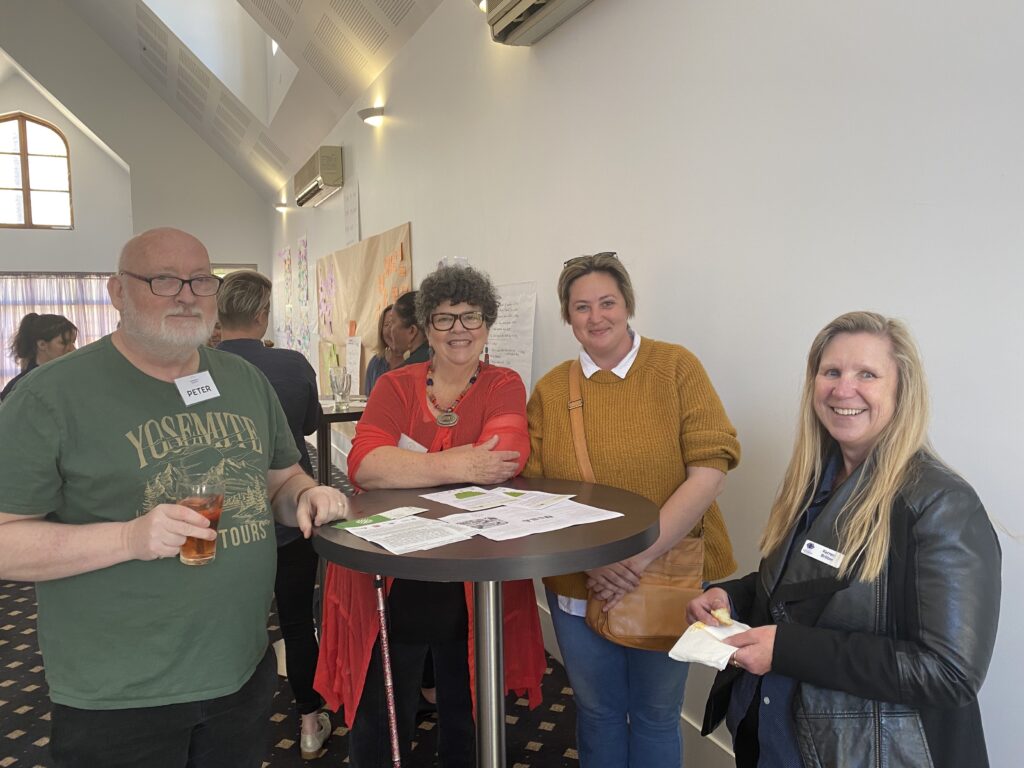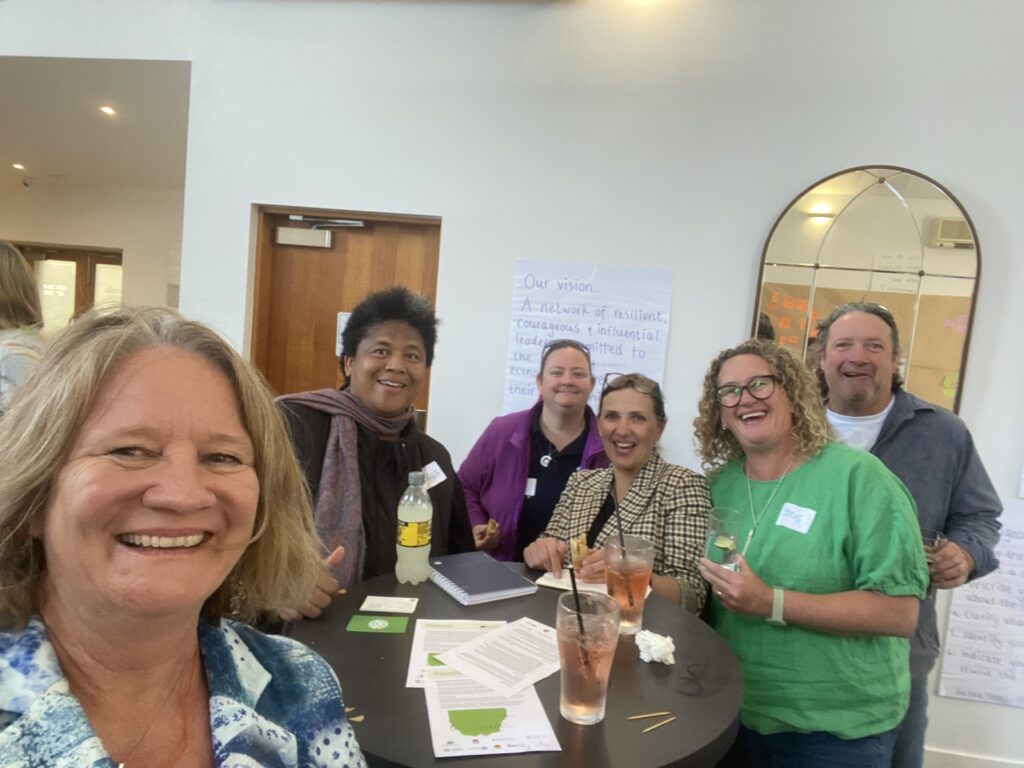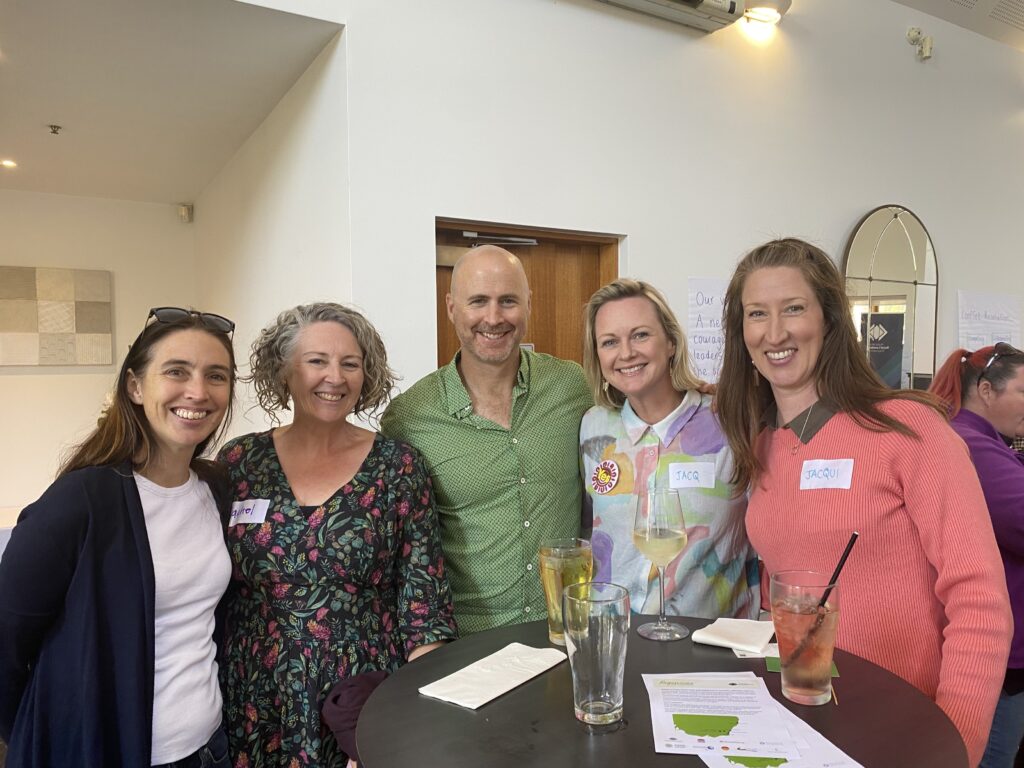Foundation for Rural & Regional Renewal (FRRR)
It has definitely been a busy month for the FRRR team out and about in the community! Below we’ve done a round up of who they met and what they saw!
Our Victoria / South Australia / Tasmania Program Manager, Karly, was lucky enough to attend the Papulu-ku Nyinjjiki (seeing homes) exhibition in Melbourne. The exhibition was hosted by OFFICE, a registered charity working with Dr Simon Quilty, who is undertaking local collaborative impact research to address deficiencies in housing and subsequent poor health outcomes in Tennant Creek. With the help of a $50,000 grant, they were able to finalise the co-design of a culturally appropriate housing model for remote First Nations communities, ready the initial Tennant Creek site for construction, and resume local brick and tile manufacturing. Karly’s pictured with one of the bricks they have made!
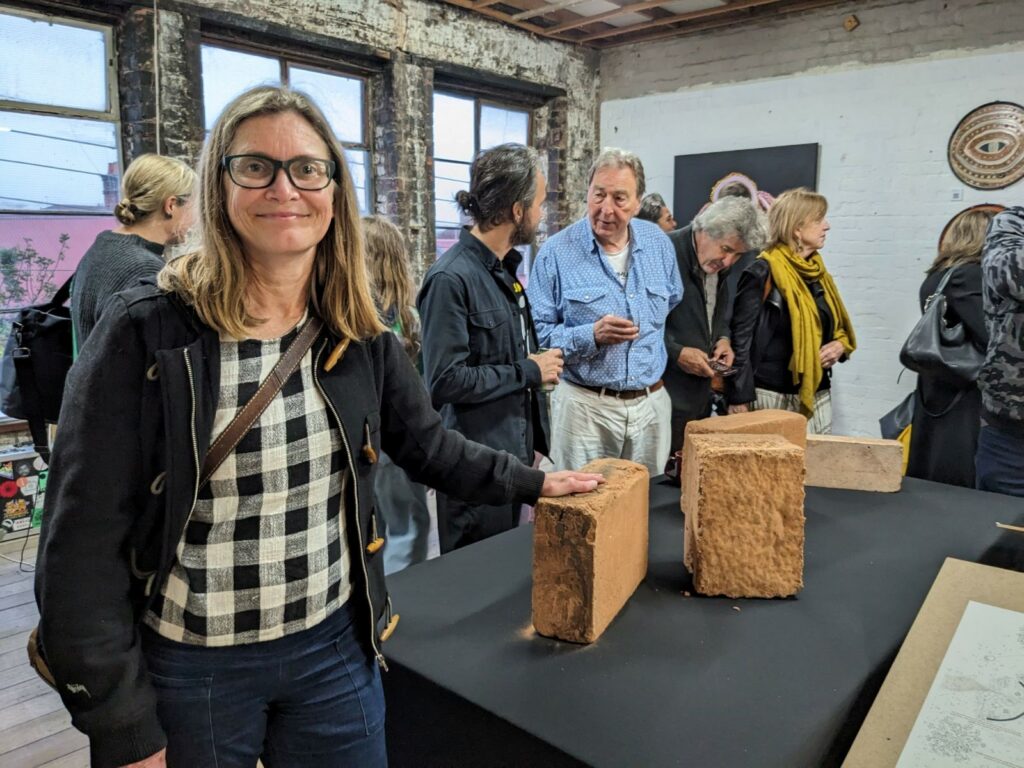
Karly at the Papulu-ki Nyinjjiki exhibition in Melbourne 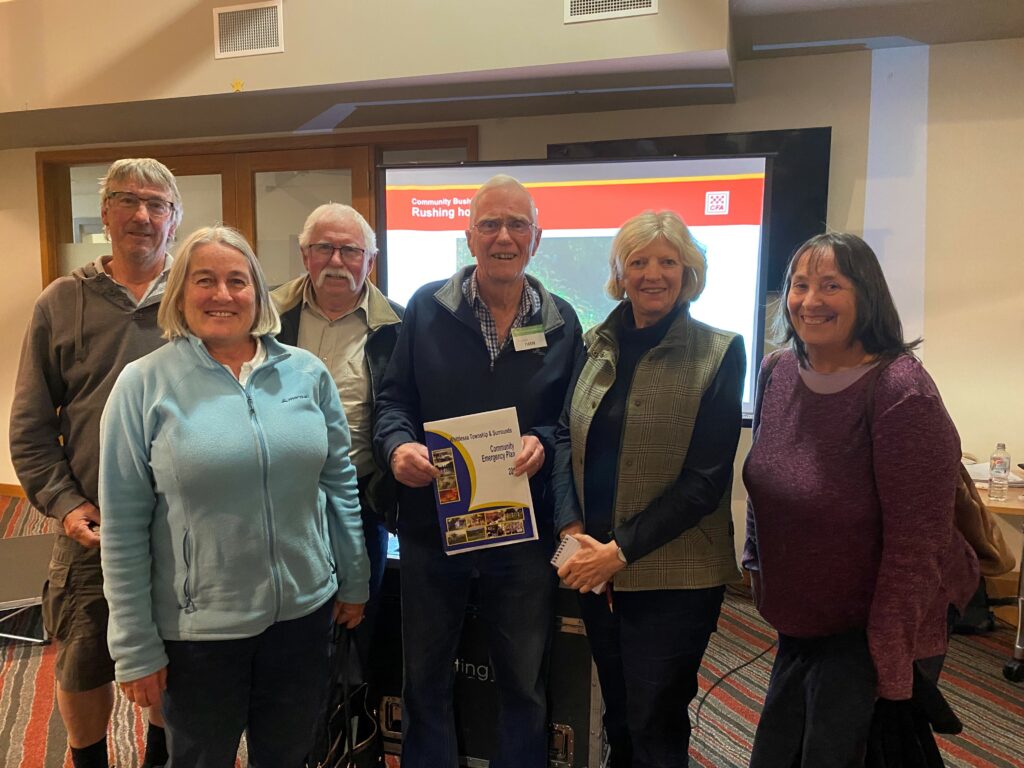
Caroline with the Whittlesea Township Resilience Committee
Caroline, our DR:FR Program Manager, joined residents in Whittlesea and surrounds for an emergency scenario run-through. Caroline tells us that there were more than 200 local residents in attendance, in addition to our DR:FR partners, the Whittlesea Township Community Resilience Committee (CRC). They heard from City of Whittlesea, CFA and others about planning and coordination for a potential bushfire, including for vulnerable people, school children who cannot get home safely and residents with animals. Residents were reminded that unpredictability of bushfires means they need to have an emergency plan and consider what they will do if they get caught out by the location of a fire or a late warning and are unable to safely evacuate.
As part of the Helping Regional Communities Prepare for Drought Small Network Grants promotion, Community Engagement Coordinator Alysia recently completed a WA outreach tour, visiting parts of the Great Southern and Wheatbelt. She met with representatives from local community organisations and dropped in Community Resources Centres and Shires to promote the opportunity in their regions.
The Great Southern was a particular focus area, with grants of up to $50, 000 available for aligned projects centred on building drought preparedness and social resilence. The trip also enabled a catch up with the Community Partner Lead Organisation for Wheatbelt South region, Corrigin Farm Improvement Group, who showcased their town. There were many conversations and deep discussions, with the fantastic weather making it all the more enjoyable. We can’t wait to see the applications from the diverse communities of WA!
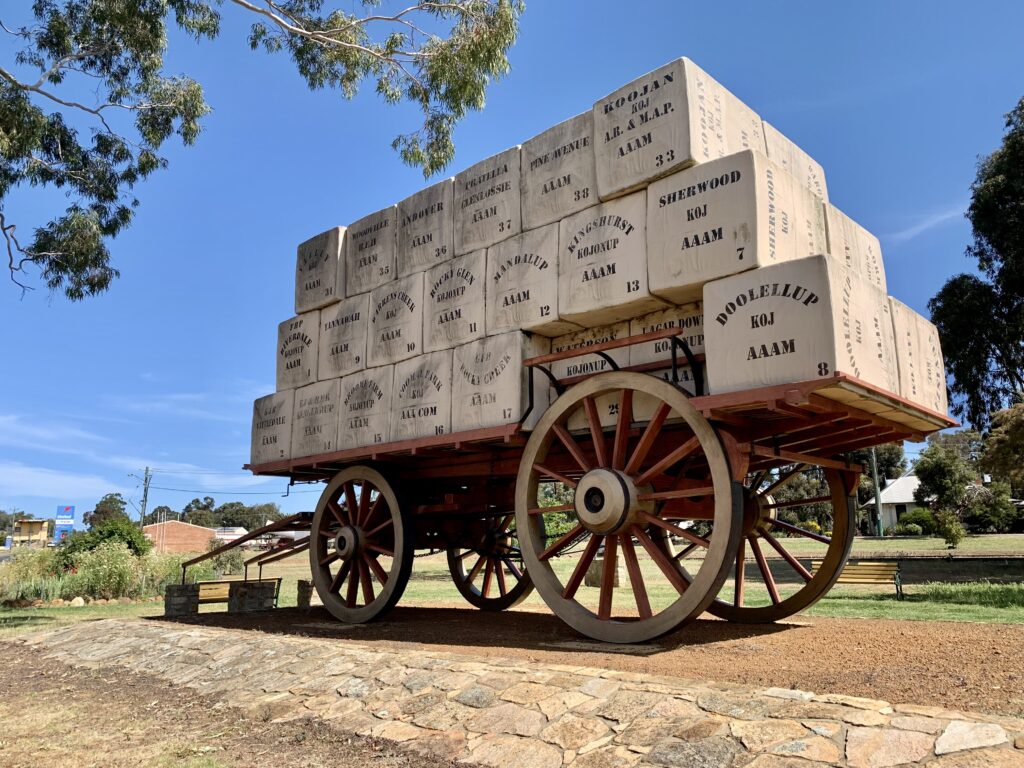
Centenary of Federation Wool Wagon, Kojonup 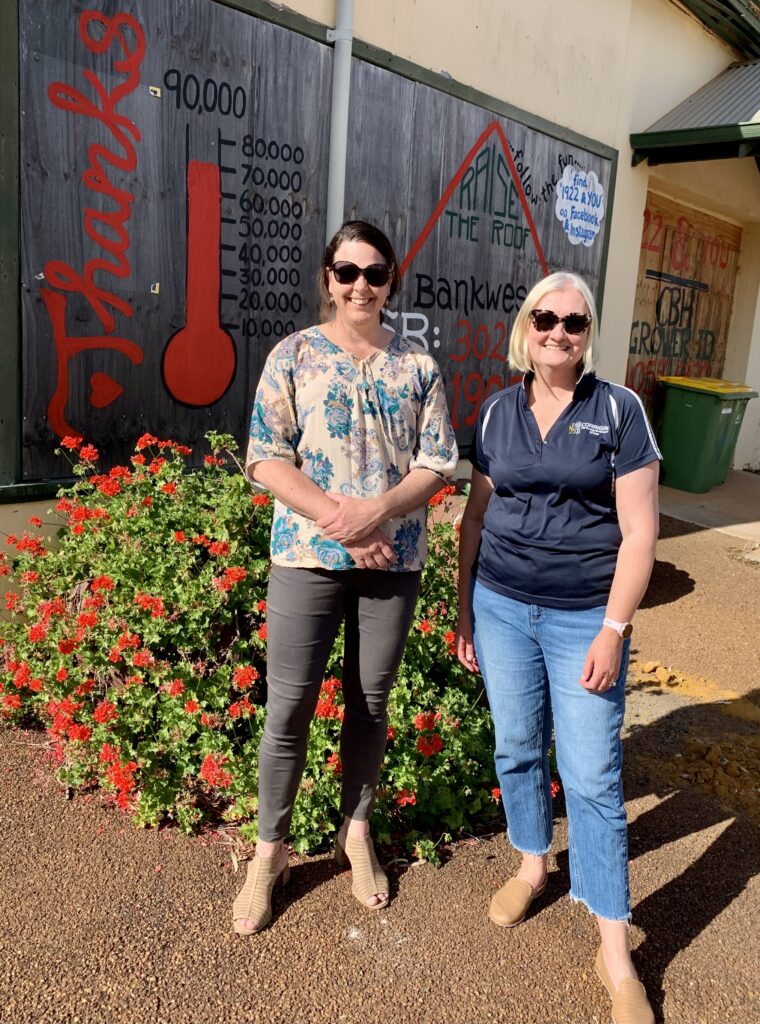
Alysia with CPLO rep Heather Talbot in Corrigin 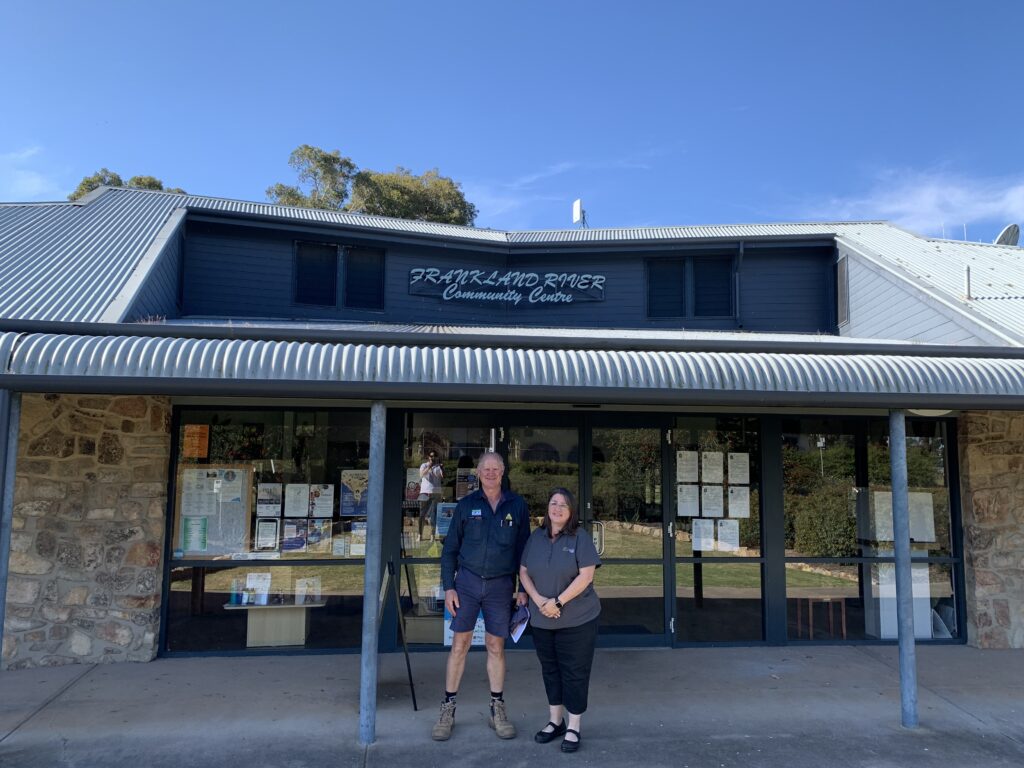
Teresa, Frankland River Community Resource Centre, and Gary, Country Club rep 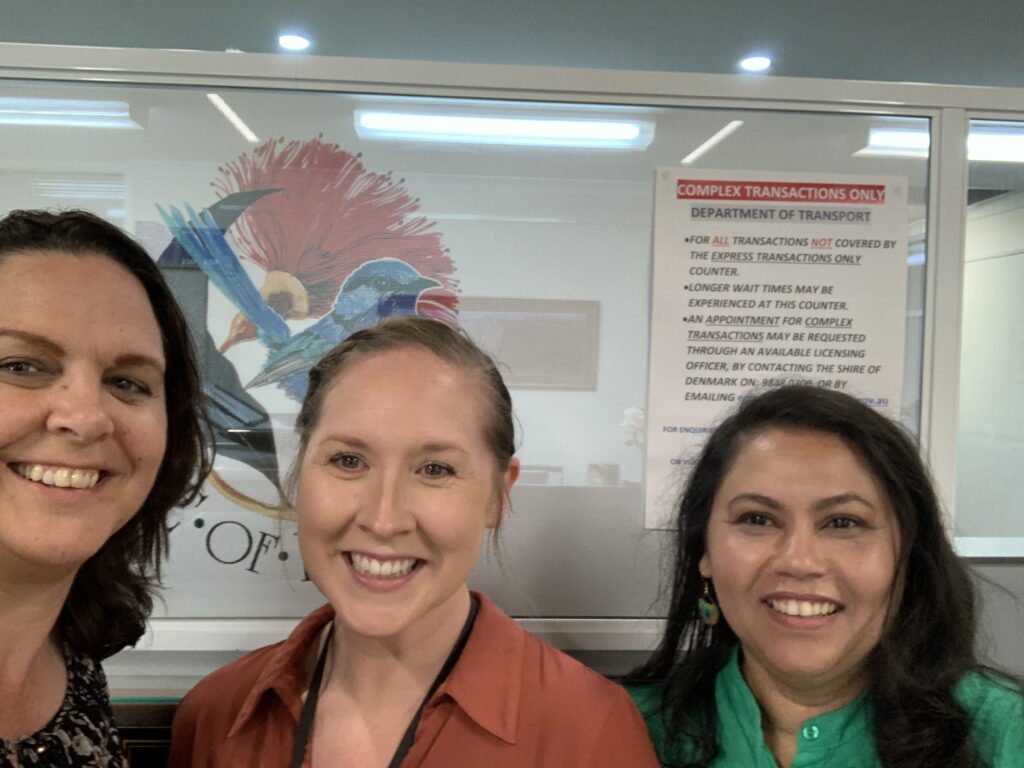
With Shire of Denmark staff
We also had Brooke, our Evaluation Coordinator, and Fee, our Community Engagement Coordinator, travelling north from Bendigo, via Mildura, taking in a few sights along the way but primarily connecting with community groups about the Future Drought Fund’s HRCPD Initiative. The trip was a mix of checking in with those implementing projects through the Community Impact Program and talking about the Small Network Grants program that’s just opened. They began by meeting Shingirai from Food Next Door Co-op. This organisation supports migrants relocating to the Mallee region by offering a space to learn about food production. Food Next Door received funding through CIP to create learning modules to be translated into at least four languages targeting propagation, water-wise food production, tool maintenance and more. The day continued with other community meetings and a bonus of connecting with various organisations at the community co-design session for the Regional Drought Resilience Plan for Wentworth Shire Council.
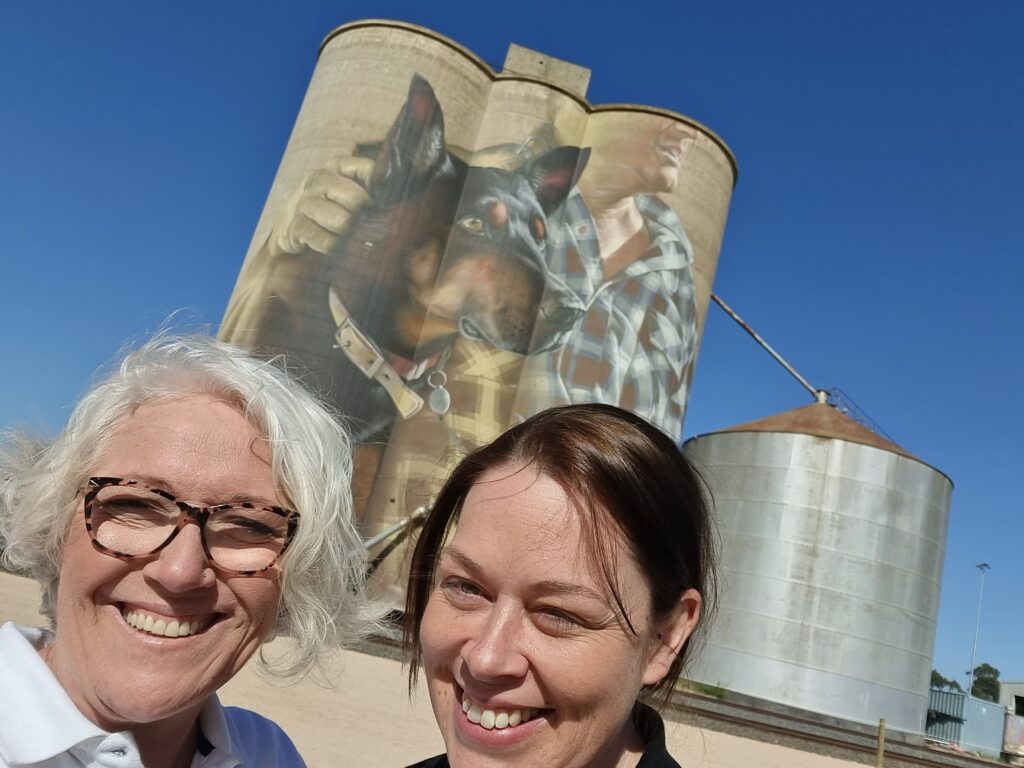
Jimmy the Kelpie, Nullawil Silo Art 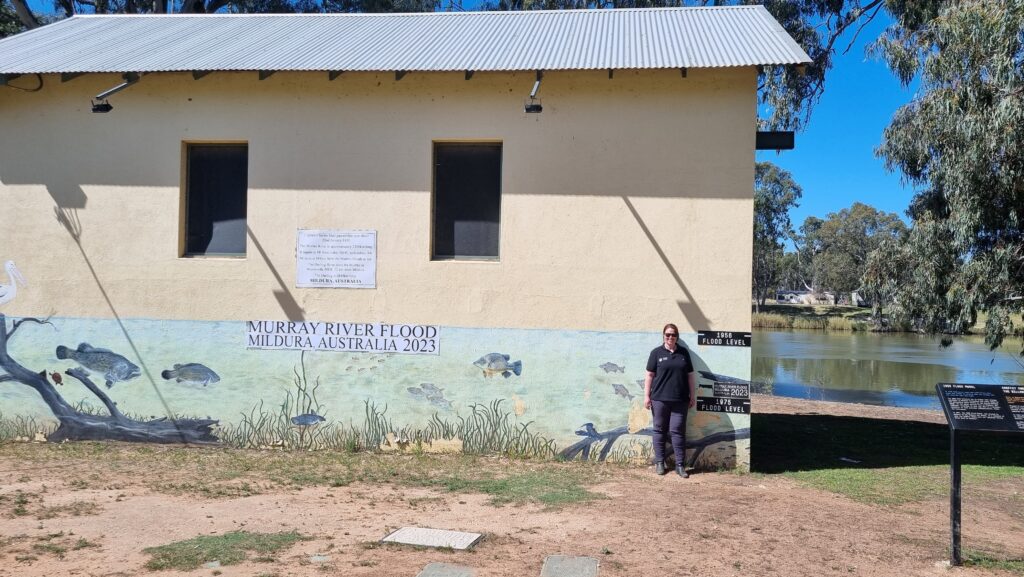
Flood levels by the Murray 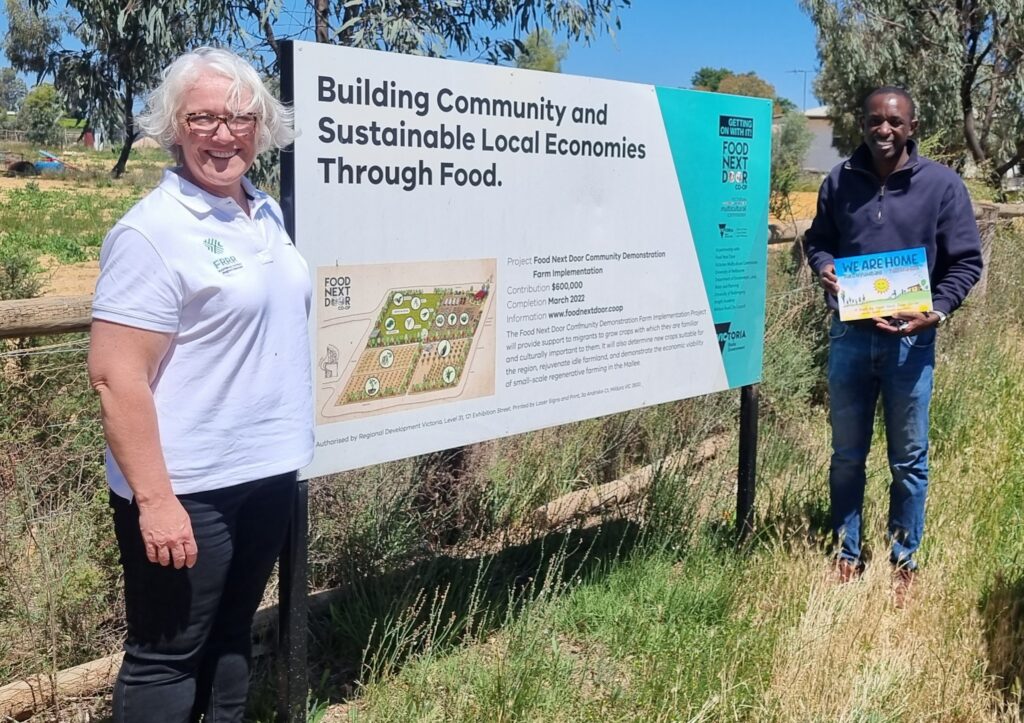
Fee with Shingirai from Food Next Door Co-op in the Mallee region
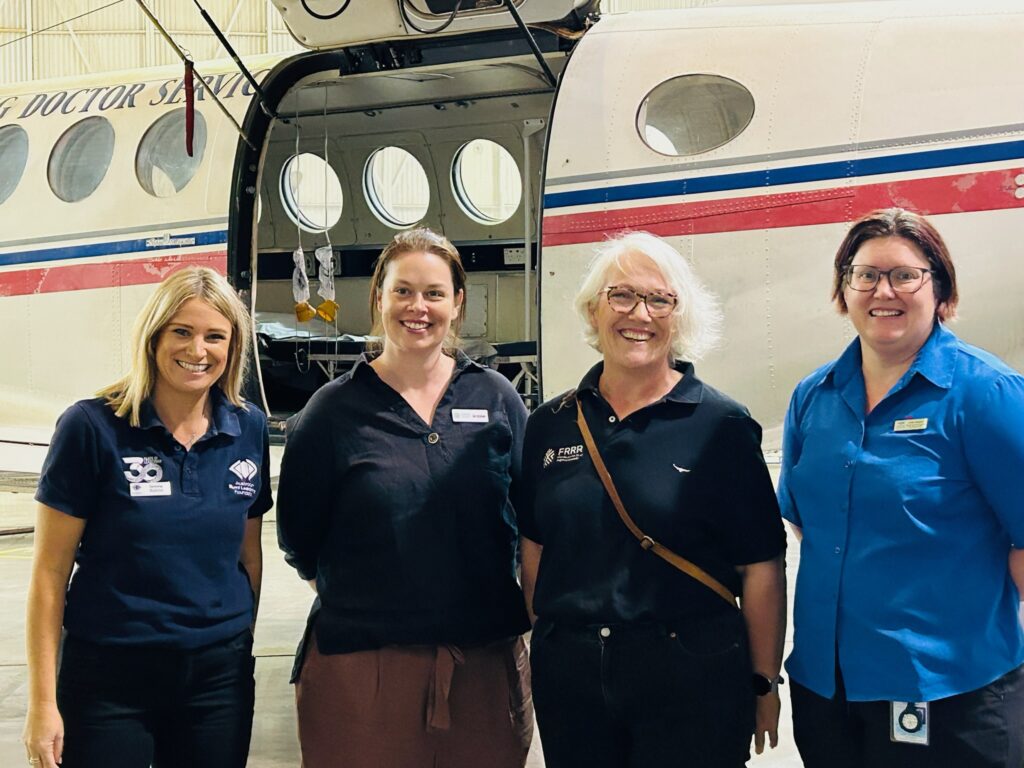
On day two of their trip, Brooke and Fee hit the road early to leave Mildura and get into Broken Hill where they met with Australia Rural Leadership Foundation’s Gemma Rostron to collaboratively share the word about Small Network Grants and continue to promote the leadership opportunities in the HRCPD Change Maker series.
They managed to squeeze in a visit to the Royal Flying Doctor Service (RFDS) Outback Heritage Experience at the tourist centre, and visited the RFDS Wellbeing Centre – a beautiful space with programs and activities like yoga, arts and crafts, connections to services, space for children to play and so much more. They were also lucky enough to connect with Broken Hill Council, Foundation Broken Hill, and ARLF Alumni before some sight seeing in town and heading out to Lake Menindee where they took in the sheer majesty of the stunning region.
The IRCF team has also been busy, connecting virtually with many of the groups that participated in the recent Social Impact in the Regions participants, while other groups have been meeting up at community expos, the most recent of which was in Ulladulla. The team was also out and about in Bega recently, with Carolyn heading to a graduation ceremony for the Regen Leadership Program.
Also in NSW, April and Jac took in Kempsey, Scotts Head, Bellingen and Bowraville in NSW, and caught up with Nancy from the IRCF team. Among the highlights was a visit to the Scott’s Head Community Garden, and seeing it well advanced and productive. They also popped in to the Bowraville Theatre, who shared the challenges of being a volunteer-run theatre, especially during COVID. The team heard how the EFTPOS system and computer FRRR helped them buy has increased not only their takings, but also their members, and increased efficiency.
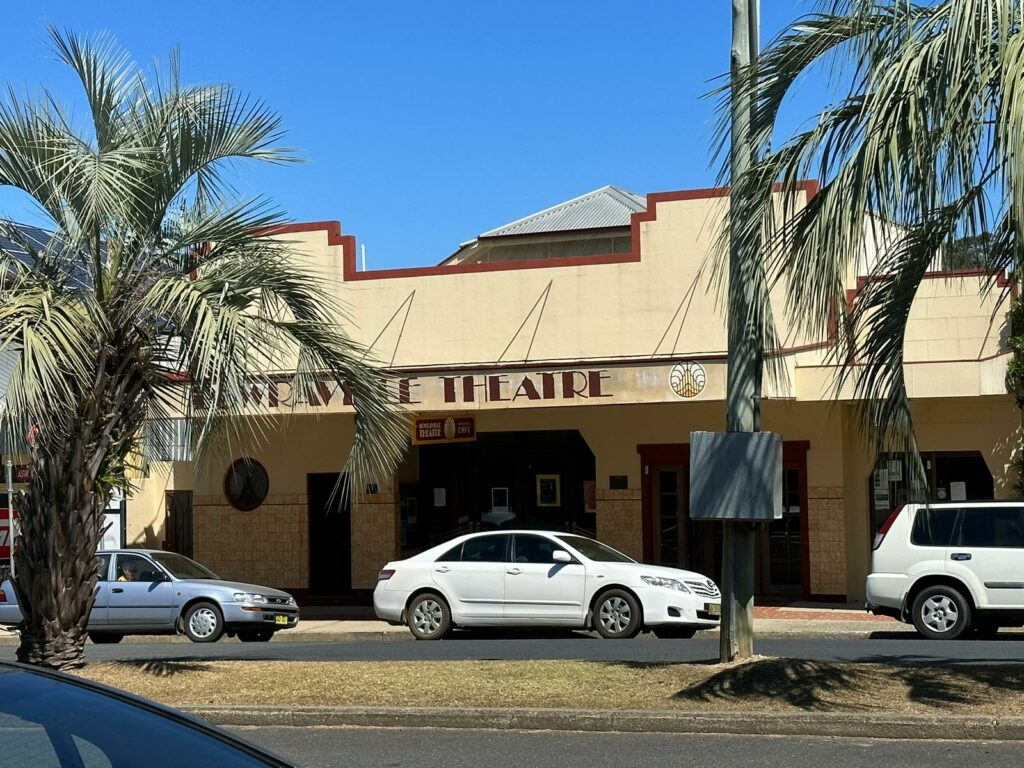
Bowraville Theatre 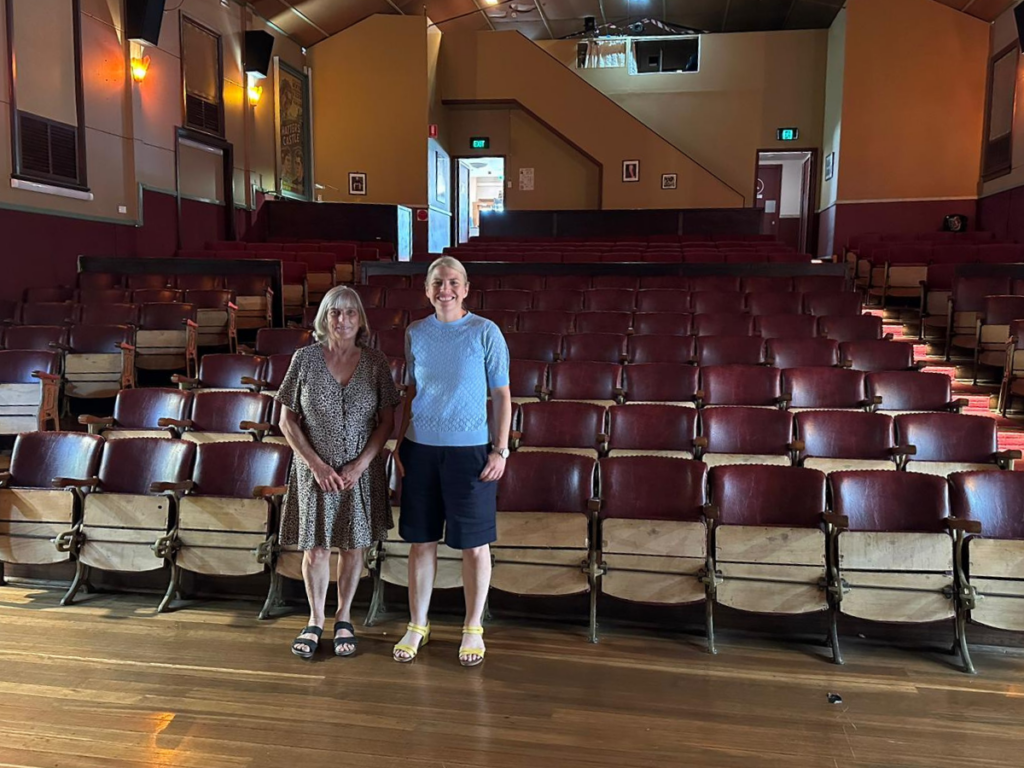
April and Jac admiring the interior of the volunteer-run theatre 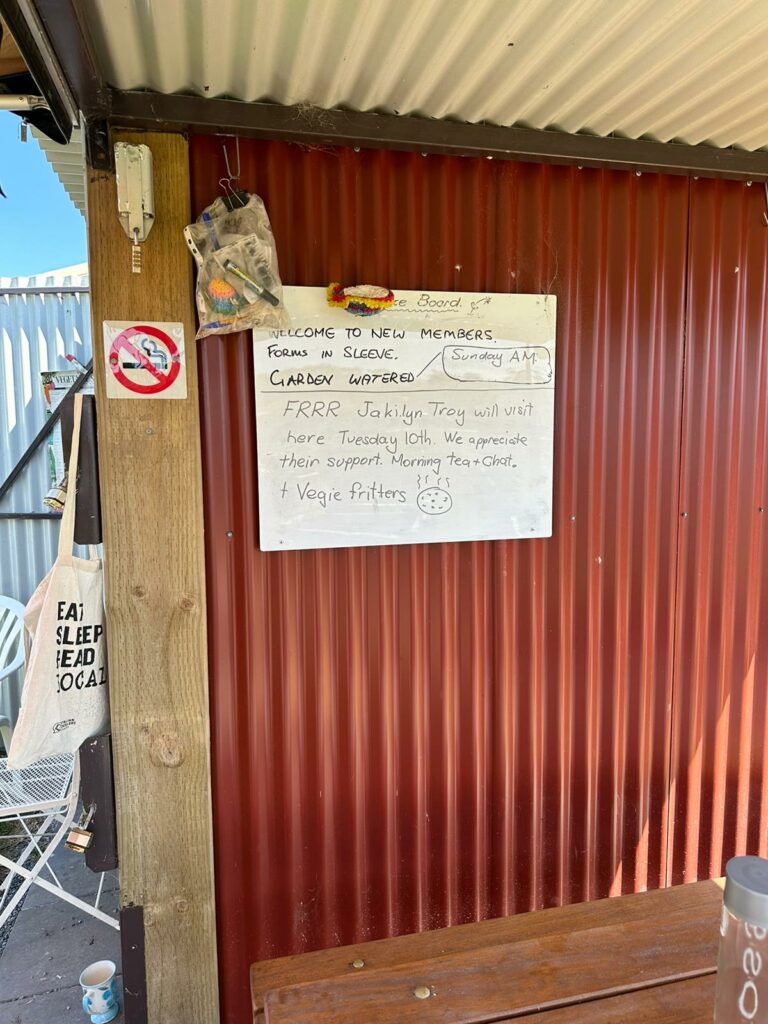
A warm and tasty welcome! 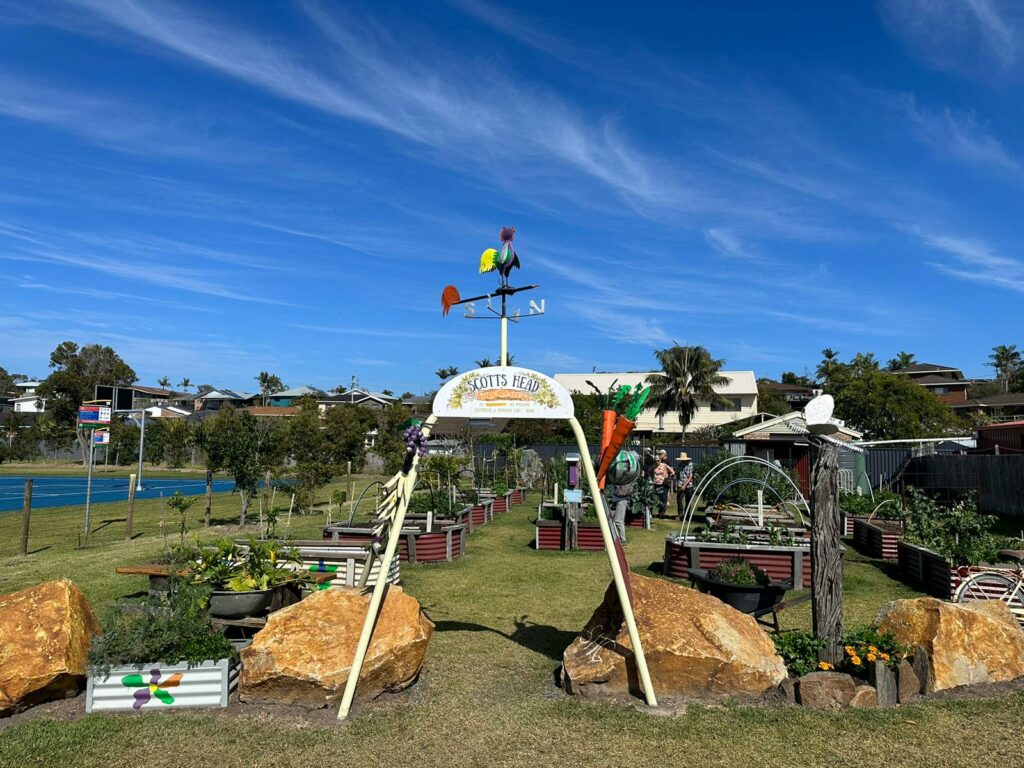
Scott’s Head Community Garden 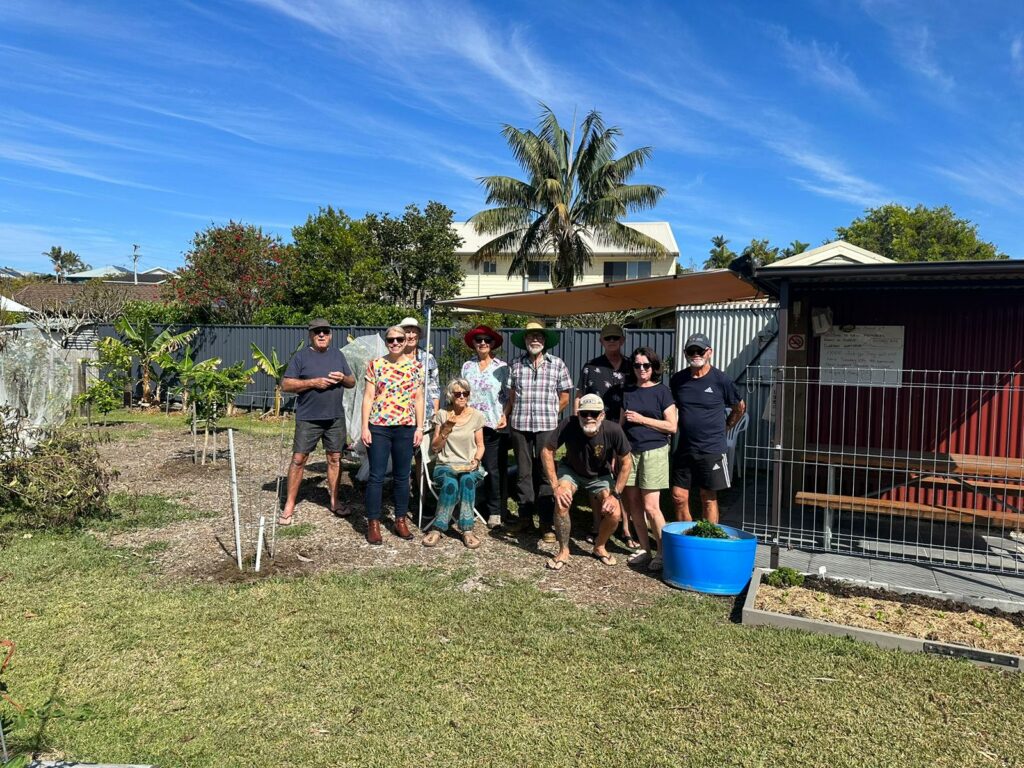
Green thumbs! 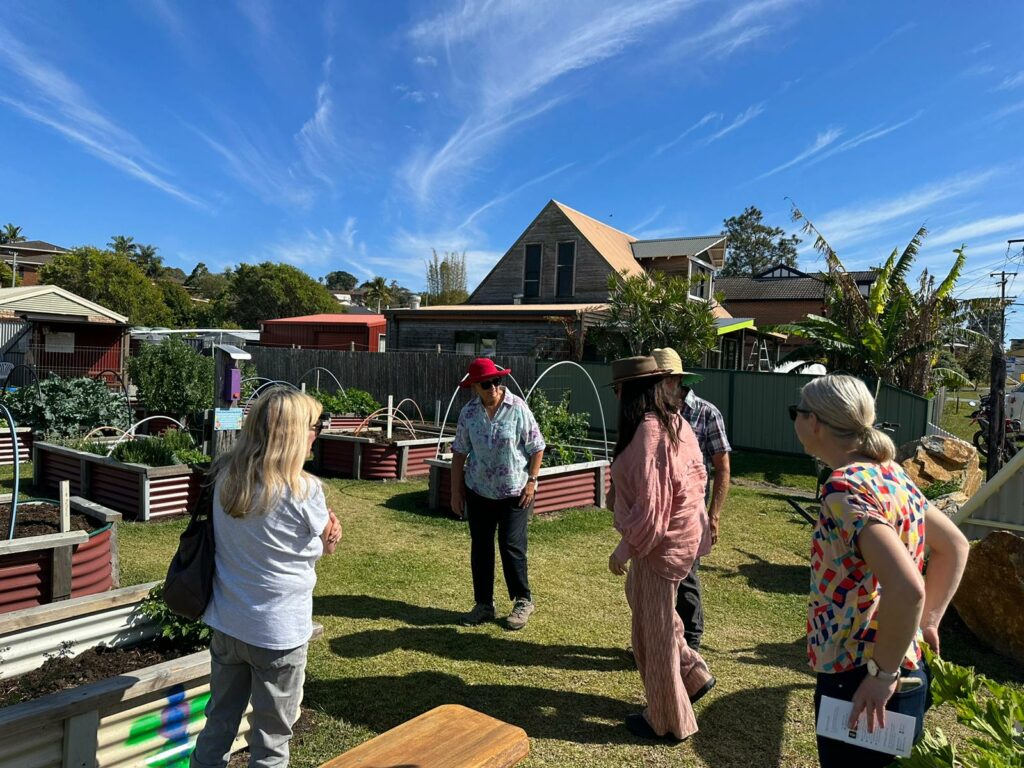
Finally, our Place Programs Lead, Jill, headed to Horsham in Victoria to meet up with our new partners, Nuseed, at their research facility and also managed to catch up with partners from Nutrien Ag Solutions too. Stay tuned for more outreach next month!
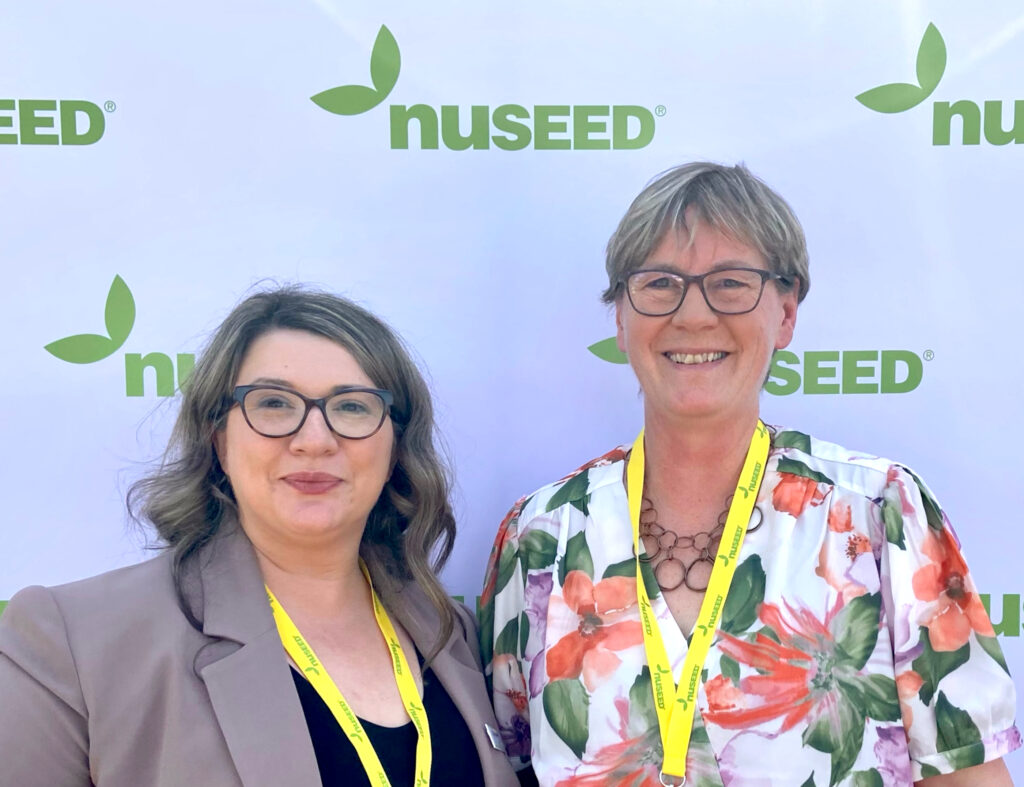
Rachel Palumbo, Nuseed, and Jill Karena, FRRR 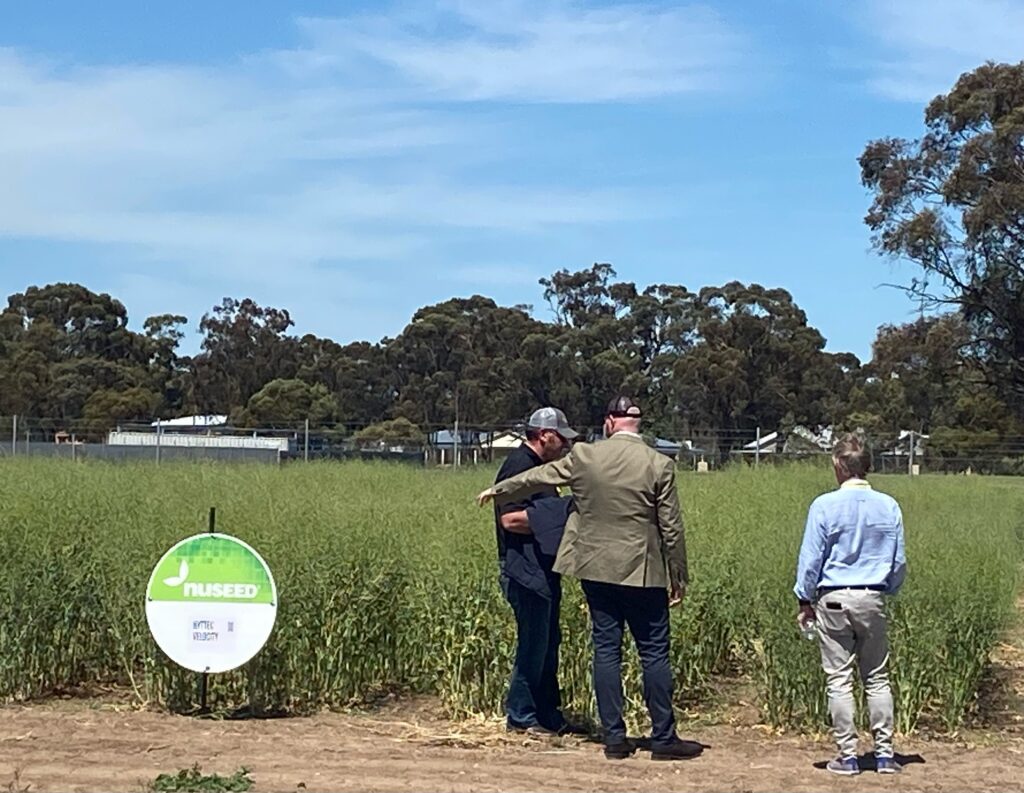
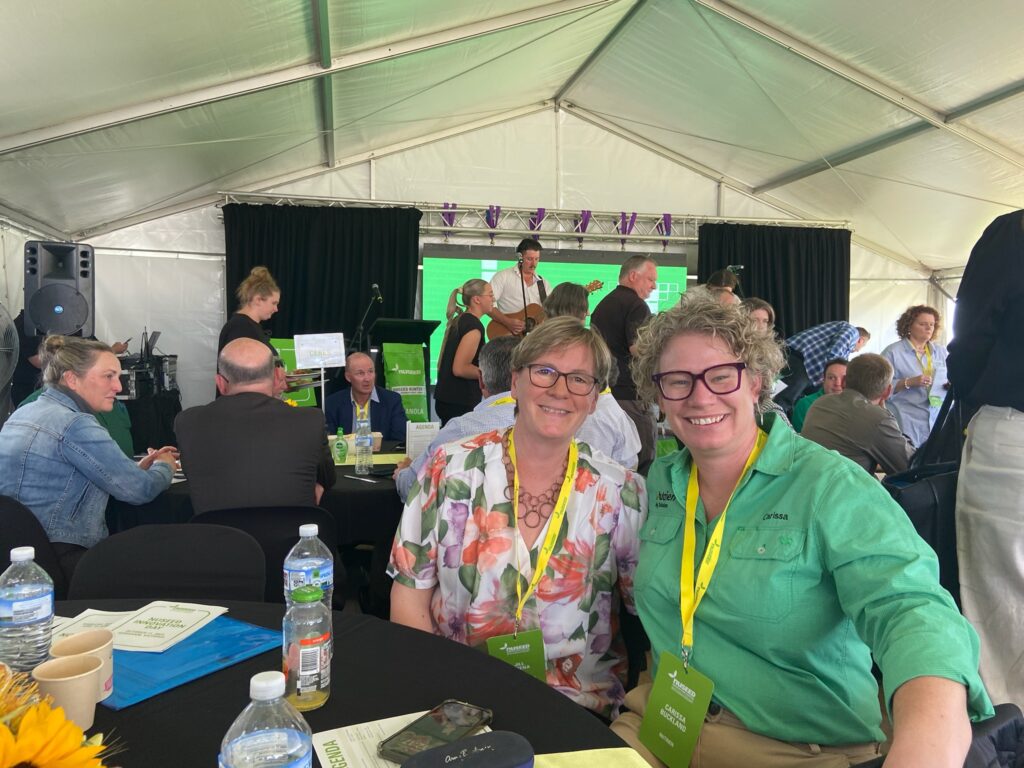
Our staff connect with communities daily, whether it be over the phone, via video calls or in person. While every community is different, common themes emerge from what they tell us. Here’s a snapshot of what we’ve heard in the last few months:
- In NSW, VIC and SA, there is worry that the ‘news cycle’ has moved on from flooding, which is concerning for those on the ground given the need for funding and support for impacted regions. In SA, there is also concern that raising funds for flood recovery may be hampered given length of time since floods started and new disasters (e.g. February’s bushfire in Port Lincoln). In NSW, many communities are moving past the ‘mop up’ stage and on to the tedious stage of dealing with insurance claims and red tape, and some groups tell us energy is waning. In VIC, there are large numbers of groups seeking flood recovery funding, and FRRR has recently been supporting a number of Neighbourhood Houses that have been providing significant additional support across their community.
- Following Ex-Tropical Cyclone Ellie and flooding which affected a vast area in NT and WA, some smaller more remote communities are having difficulty accessing relief and support targeted towards those communities highlighted by the media. Extended family networks living outside flood-affected communities are working to broker solutions with service providers on ground. Damage to the road network and the subsequent transport blockages are having flow-on impacts for remote communities outside the immediately impacted area. These more distant communities are also seeking relief support to maintain basic services and food security.
- FRRR’s outreach trip to NT is resulting in a surge in applications, both with directly contacted groups and via local referrals. We are seeing a rise in local government organisations working in remote parts of NT that are seeking to deliver projects that will increase community connections and build community resilience.
- In VIC, there is a continued strong demand for funding for festivals and events to support community connection, celebrate place and cultural identity, and boost economic development.
- In the small communities of WA (populations under 4,500), there is strong demand for projects providing access to services and activities.
- In QLD, funding is commonly sought to assist with community infrastructure and equipment projects intended to develop organisational resilience and capacity.
- In SA, there is strong demand for projects to repair community halls and sheds, as well as to assist with health and mental health and wellbeing. There is also concern for education and employment pathways for young people to prevent them from leaving smaller towns in their search for work and education, which is often a real financial strain on families.
- While the impact of multiple disasters builds, some groups are concerned that many funders only provide grants for ‘declared disasters’ – when it can also be localised disasters, storms, fires, etc, that have a big impact on communities.
- A learning in TAS that we are reminded of in every state we visit, is that groups often lack the capacity (time) to apply for funding, and in some instances, the grant ‘literacy’. Local groups are keen to attend grantseeker workshops to increase skills and confidence.
- Cost of living pressures are resulting in increasing demand for food relief. In TAS, Neighbourhood Houses are vital for as a place for connection and food relief (most have community gardens that provide free or affordable fruit and veg, as well as ‘freezer meals’). They also often provide a volunteer based transport service to get the disadvantaged and elderly to health appointments, and rising costs generally are putting this service in stress.
- Housing pressures (rent, lack of rental options), which were exacerbated during COVID, are even more of a concern with rising costs of living. Discrete homelessness (i.e. living in campgrounds) is increasing, however this is not an option in summertime with holiday makers using these facilities. There’s a strong desire to develop local solutions for housing pressures.


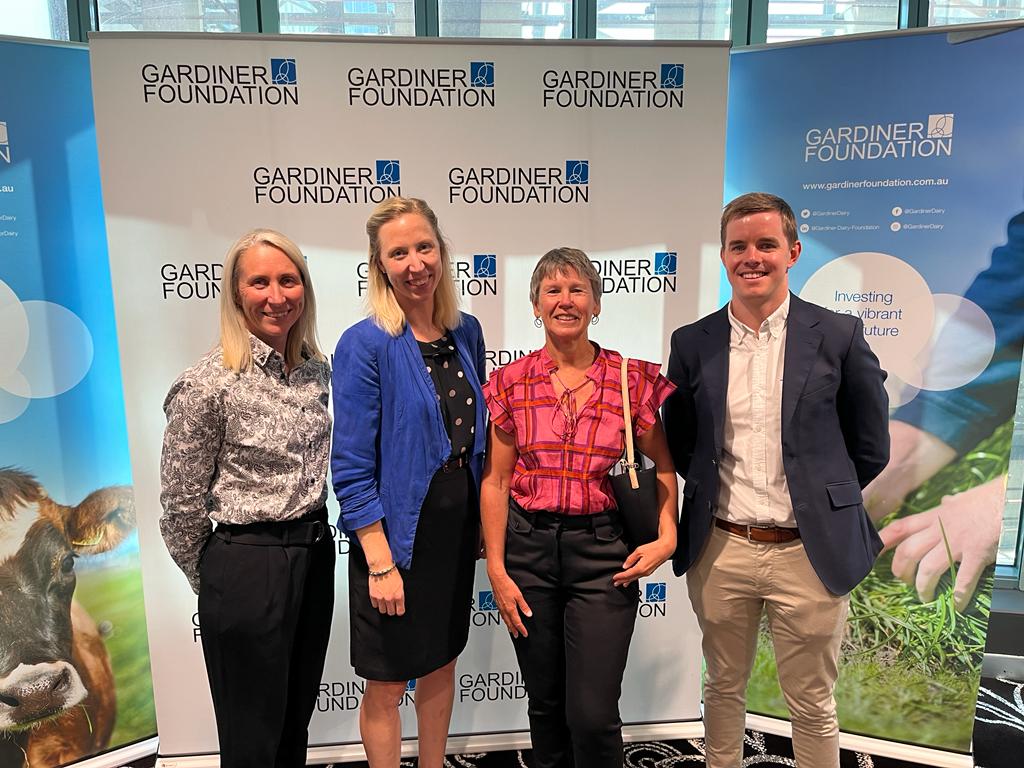
You may also find this recent interview with our Disaster Resilience and Recovery Lead, Nina O’Brien, insightful. In a conversation with our partners Suncorp, Nina shared her thoughts on why communities banding together build back better than bricks and mortar.
There are many more insights we could share, so if you’d like to know more about any of these comments, or are interested in a particular geography or issue, please get in touch via info@frrr.org.au.

